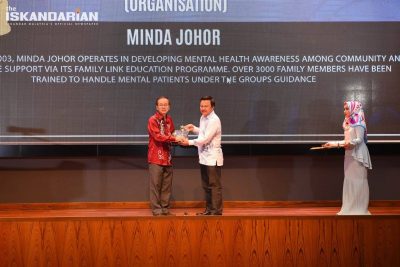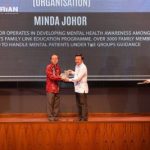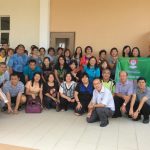
According to the World Health Organisation, one in four people will suffer from a mental or neurological disorder at some point in their life. Though common, mental illnesses are often misunderstood and not talked about, hence, not only do patients not know where to seek help, family members do not know the steps they should take either.
MINDA Johor was set up in 2002 by Dr. Abdul Kadir, who was the HOD of the Psychiatric Department at Hospital Sultanah Aminah at that time. He gathered about 20 families visiting their loved ones at the ward, and together they formed a family support group where he shared materials from a World Mental Health meeting he attended in Hong Kong. He wanted to empower the families with resources to understand how to properly manage a mentally ill family member. The materials, meant for higher-level understanding, was simplified for everybody to learn and benefit from.
Since then, the syllabus has been updated and taught all around Malaysia in classes organised by MINDA for free. The one-day course consists of five topics:
- Understanding mental illness
- Communication with patients
- Understanding of medications
- Problem solving
- Being nice to yourself – practicing empathy
In Topic 2 – which involves ways of communicating with patients, a role-play is observed where participants stand and loudly chant a script many times while their seated partner listen to instructions given by a trainer. The ones sitting, who play the role of schizophrenic patients, then share their difficulty of listening to what the trainer was saying because of the noisy chants that hovered over their head. The roleplay demonstrates how patients experience relapses; how nothing makes sense to them due to too much ‘noise’ in their heads. Soon Keak Shon, a recovered schizophrenic, said he didn’t leave his house for 10 months at one point, and described having good and bad “ghosts” in his head. He stressed the importance of taking medication, though he had initially refused them. Topic 3 is hosted by a resident doctor who educates members on different ways to administer medication to a patient.
How Kim Seng, President of MINDA, shared how he was initially embarrassed to tell others his daughter was suffering from a mental illness. As a remisier, he was ashamed of speaking about her to others and did not take her out much. However, after learning from Dr. Abdul Kadir, he became more open to telling others about her. Everyone responded kindly when they understood her condition. His daughter, now in her forties, has recovered and can work on office tasks for him. How Kim Seng finds solace in sharing living proofs that there are cures to mental illnesses. He hopes that the public understands mental illnesses and there would be no discrimination, especially in workplaces, where employers should be open to employing mental illness patients. A successful society is one that creates inclusion, mutual respect and understanding for all.






